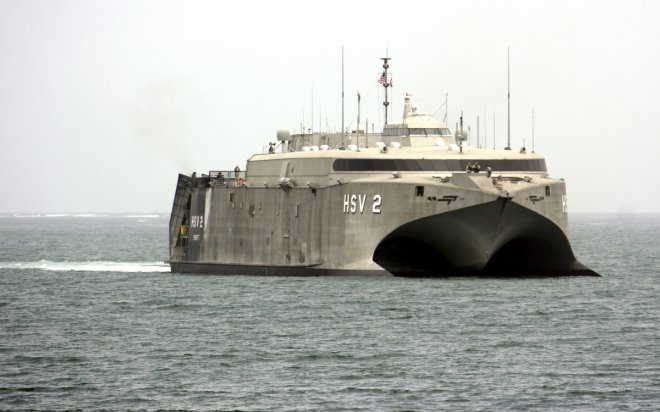
The United States and Philippine navies conducted a joint naval patrol on Saturday in dangerous southern Philippine waters, known as a hunting ground for local Muslim militants, amid rising international concern about Islamist militancy and piracy in the region.
A US embassy statement said that U.S. Navy combat ship USS Coronado and the Philippine frigate BRP Ramon Alcaraz carried out their joint patrol of the Sulu Sea, a body of water off the southern Philippines where militant groups have carried out kidnappings.
"These patrols enhance regional peace and stability," the US naval commander, Rear Admiral Don Gabrielson said, according to the statement. "Our at-sea operations with the Philippine Navy demonstrate our commitment to the alliance and deter piracy and illegal activities," he added.
There are international fears fighters sympathetic to Islamic State will cross maritime borders between Malaysia and Indonesia to join Muslim rebels who seized Marawi City in the southern Philippines five weeks ago.
In recent months, the Abu Sayyaf, an extremist group based mainly in the southernmost Philippines, have seized hostages from vessels in the Sulu Sea. Sometimes, they have also beaheaded their hostages when the demanded ransoms were not paid.
The group, which includes factions that have pledged allegiance to the Islamic State movement, has also crossed the sea to Malaysia where they have kidnapped people for ransom.
The Abu Sayyaf fighters are also believed to have joined with other militants in taking over the southern Philippine city of Marawi in May and are still battling Philippine troops. More than 400 people have been killed. The US embassy said the Philippine government requested the joint patrol.
Earlier, Philippine President Rodrigo Duterte said that he is moving the country away from the United States, which is its main defence ally and towards China and Russia.
Last year, Manila said that it would no longer take part in joint US-Philippine naval patrols in the South China Sea, in what many see as a concession to Beijing which claims most of those strategic waters.
The Philippines and other countries have competing claims to the South China Sea. However Duterte has downplayed the Philippine claim in a bid to improve ties with China.
In June, Indonesia, Malaysia and the Philippines also began joint naval patrols in their region due to threats from extremist groups.









